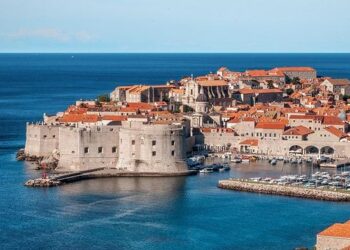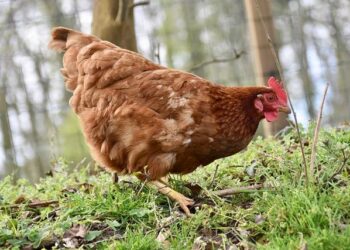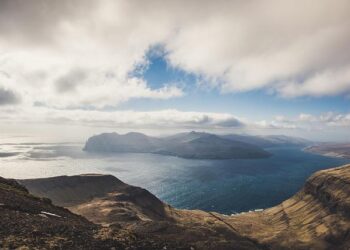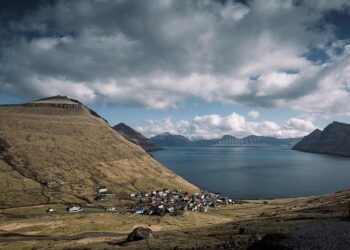Newfoundland and the Faroe Islands, two North Atlantic communities separated by thousands of miles yet bound by shared history and resilient spirit, are embracing a promising new chapter of collaboration and cultural resurgence. As both regions confront economic challenges and seek sustainable development, emerging partnerships highlight opportunities for pride and renewal. This article explores how Newfoundland and the Faroe Islands are leveraging their unique identities and resources to forge connections that could redefine their futures.
Newfoundlands and the Faroe Islands Strengthen Cultural and Economic Ties
In a landmark development, officials from Newfoundland and the Faroe Islands have announced a series of initiatives aimed at enhancing collaboration on cultural preservation and economic development. This growing partnership leverages the regions’ shared maritime heritage, focusing on sustainable fisheries, tourism, and traditional crafts. Local artisans and business leaders from both sides are already benefiting from exchange programs that promote the unique identities of their communities while tapping into new market potentials.
To further cement this alliance, a joint task force has been established to explore opportunities in renewable energy and digital innovation. Here’s a snapshot of key areas targeted for cooperation:
- Sustainable fishing practices integrating local expertise and environmental research
- Cultural festivals celebrating folklore, music, and culinary traditions
- Tourism development with an emphasis on eco-friendly travel packages
- Technology exchanges focused on improving connectivity and infrastructure
| Sector | Newfoundland Strength | Faroe Islands Strength |
|---|---|---|
| Fishing | Cod expertise, large fleet | Salmon aquaculture, sustainable methods |
| Tourism | Historic sites, rugged coastline | Birdwatching, dramatic cliffs |
| Renewable Energy | Wind power projects | Hydropower facilities |
Exploring Collaborative Opportunities in Fisheries and Renewable Energy
Both Newfoundland and the Faroe Islands, with their rich maritime heritage, are uniquely positioned to lead a new era of sustainable development that harmonizes traditional fisheries with cutting-edge renewable energy initiatives. By combining expertise in sustainable fishing practices with advancements in offshore wind and tidal power, these North Atlantic communities could pioneer an integrated model that balances economic growth with environmental stewardship. Collaboration on research, resource management, and technology exchange creates fertile ground for innovative solutions, pushing the boundaries of what regional cooperation can achieve in resource-rich seascapes.
Key areas of collaboration include:
- Joint development of low-impact fishing technologies
- Shared offshore wind farm projects
- Implementation of tidal energy pilot programs
- Cooperative environmental monitoring and data sharing
- Community-based sustainability education initiatives
| Sector | Newfoundland Strength | Faroe Islands Strength |
|---|---|---|
| Fisheries | Large-scale cod fishery experience | Innovative quota management |
| Renewable Energy | Emerging offshore wind infrastructure | Advanced tidal energy testing |
| Research & Innovation | Marine ecosystem studies | Marine technology incubation hubs |
Policy Recommendations to Foster Sustainable Growth and Community Resilience
To unlock the full potential of Newfoundland and the Faroe Islands’ partnership, targeted policy initiatives must prioritize sustainable economic models that respect the unique environmental and cultural landscapes of both regions. Key strategies include fostering green energy investments, supporting local fisheries with innovative and eco-friendly technologies, and enhancing cross-community educational exchanges to share best practices in sustainability. By emphasizing collaboration over competition, policy frameworks can nurture ecosystems where small businesses thrive, traditional knowledge is preserved, and innovation is community-driven. Governments and stakeholders should also incentivize renewable energy projects, ensuring long-term resilience against climate uncertainties that threaten coastal economies.
Critical policy actions to advance this vision include:
- Implementing joint environmental monitoring programs using shared data systems.
- Expanding public-private partnerships for sustainable tourism and cultural heritage preservation.
- Creating robust funding channels for local startups focused on circular economy initiatives.
- Enhancing infrastructure for digital connectivity to support remote work and education.
- Promoting inclusive governance models that engage indigenous and community voices.
| Policy Focus | Expected Outcome | Timeframe |
|---|---|---|
| Renewable Energy Partnerships | Reduced carbon footprint, job creation | 3-5 years |
| Sustainable Fisheries Management | Healthy fish stocks, economic stability | Immediate – ongoing |
| Closing Remarks As Newfoundland and the Faroe Islands continue to explore avenues for collaboration, their shared heritage and mutual interests present a powerful foundation for pride and renewal. This evolving partnership not only promises economic and cultural benefits but also reinforces the importance of embracing history while looking confidently toward the future. For communities on both sides of the Atlantic, the opportunities ahead underscore a compelling narrative of resilience and cooperation-one worth watching closely in the years to come. ADVERTISEMENT |















